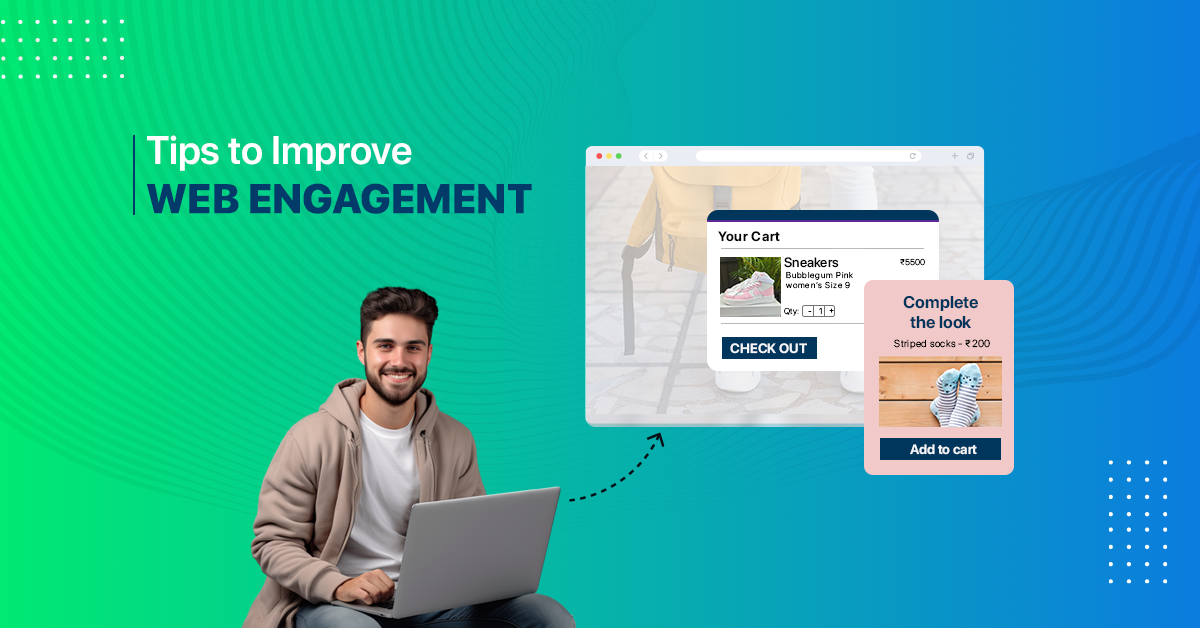In the fast-paced world of digital marketing, customers have access to a plethora of channels and touchpoints to plan and book their travel. As a result, the travel industry has become increasingly competitive, and businesses need to adopt new marketing strategies in order to stay ahead of the curve. One such strategy that has gained momentum in recent years is omnichannel marketing.
Although commonly associated with e-commerce, omnichannel marketing also has great potential for the travel industry. According to recent statistics, 82% of travel bookings occur through a website or mobile app, and 90% of travellers expect personalised recommendations while planning their trip. This creates a significant opportunity for travel businesses to leverage the power of omnichannel marketing and provide a seamless and personalised experience for their customers.
Thus, it’s clear that omnichannel marketing is crucial for the travel industry to attract and retain customers. In this blog, we will discuss five tactics that travel businesses can use to revolutionise their marketing strategies and drive customer engagement and loyalty. These tactics include personalisation, creating a seamless cross-channel experience, leveraging social media, incorporating SMS and mobile marketing, and using email marketing to its full potential.
Importance of Omnichannel Marketing for Travel Businesses
In the competitive world of travel, businesses need to adopt new marketing strategies to stay relevant. Omnichannel marketing provides a consistent and seamless customer experience across all channels, making it easier for customers to plan and book their travels. This personalised experience is crucial, as travellers expect to compare prices, read reviews, and receive recommendations based on their preferences.
Statistics and trends support the importance of omnichannel marketing in travel. For example, 50% of travellers research their options across different devices before purchasing, and 46% of bookings are made on mobile devices. Additionally, 90% of leisure travellers stated that digital touchpoints significantly influence their decisions regarding travel providers. Businesses that don’t invest in omnichannel marketing risk losing potential customers and falling behind competitors.
Thus, omnichannel marketing is essential for travel businesses to provide a personalised and seamless experience, increase engagement, and drive revenue growth.
Let’s take a closer look at the five omnichannel marketing tactics:
Utilise Personalisation for Your Marketing Campaigns
Personalisation is a key factor in the travel industry, as travellers expect a personalised experience catering to their needs and preferences. By using customer data to create targeted messages and recommendations, businesses can provide a more personalised and engaging experience, driving loyalty and increasing revenue.
There are many ways to personalise marketing campaigns for the travel industry. For example, businesses can use data such as search history, location, and past bookings to create customised offers and recommendations. Personalised emails, social media ads, and push notifications can also be used to target customers based on their interests and behaviour.
Successful personalised marketing campaigns in the travel industry include Airbnb’s personalised search recommendations based on travel history and preferences and Expedia’s use of geolocation data to offer personalised deals and promotions.
Overall, personalisation is a powerful tool that can enhance the customer experience, drive engagement, and increase revenue for travel businesses. Let’s now explore some additional tactics to take your omnichannel marketing to the next level.
Create a Seamless Cross-Channel Experience
The customer journey in the travel industry often involves multiple touchpoints across various channels, such as a website, social media, and email. A seamless cross-channel experience is crucial in creating a positive customer experience and increasing loyalty. One way to achieve this is by using consistent branding and messaging across all channels, such as your website, social media, and email campaigns. For example, if you have a particular colour scheme or logo, make sure it’s used consistently across all channels to help customers recognise your brand.
In the travel industry, a seamless cross-channel experience can lead to increased bookings and customer satisfaction. For instance, if a customer starts a booking on your website and then switches to your mobile app to complete it, they should be able to easily access their previous search history and continue where they left off.
One successful example of a seamless cross-channel experience in the travel industry is MakeMyTrip, one of India’s leading online travel companies. They provide customers with a consistent experience across all channels, from their website to their mobile app, allowing customers to seamlessly switch between devices to complete their bookings.
By creating a seamless cross-channel experience, you can provide a better customer experience and drive more bookings for your travel business.
Leverage Social Media for Your Marketing Strategy
Social media has become an integral part of our lives, and businesses have not lagged in leveraging its potential. For the travel industry, social media is an important channel for marketing as it allows businesses to engage with customers in real time and showcase their offerings in an interactive manner. As per reports, the digital population of India has been rapidly expanding in the past decade, with more than 900 million active internet users, making it one of the world’s largest markets for social media. To effectively use social media for marketing in the travel industry, businesses can use user-generated content, which refers to customer-generated content, such as photos, reviews, and videos. User-generated content helps in building trust and authenticity as it comes directly from the customers. Another way to effectively use social media for marketing in the travel industry is by using social listening tools, which allows businesses to monitor social media conversations and gain insights into customer preferences and feedback.
Thus, by leveraging social media for their marketing strategy, travel businesses can increase their brand awareness, engage with customers in real time, and showcase their offerings in an interactive manner.
Incorporate SMS and Mobile Marketing
Mobile marketing is a crucial element of omnichannel marketing for travel businesses. With the majority of travel bookings made through mobile apps, it’s important to have a mobile marketing strategy in place. Here are some ways to incorporate SMS and mobile marketing into your travel marketing campaigns:
Personalised Messaging: Use customer data to create personalised messages and recommendations for travellers.
Location-Based Targeting: Use GPS data to send targeted messages and offers to travellers based on their location.
Push Notifications: Send push notifications to remind travellers about upcoming trips, offer exclusive deals, and provide real-time updates.By incorporating SMS and mobile marketing into your travel marketing strategy, you can increase engagement and drive conversions. Here are some examples of successful mobile marketing campaigns in the travel industry:
MakeMyTrip: The Indian travel company uses SMS to send booking confirmations and reminders to travellers, as well as promotions and deals.
OYO Rooms: The Indian hotel booking platform uses push notifications to offer discounts and upgrades to users who have abandoned their booking process.
With the increasing use of mobile devices for travel bookings, incorporating SMS and mobile marketing into your omnichannel marketing strategy can be a game-changer for your travel business.
Use Email Marketing to Its Full Potential
Email marketing continues to remain one of the most effective channels for reaching out to customers and driving loyalty in the travel industry. By sending targeted and personalised messages to customers at the right time, travel businesses can create lasting impressions and build relationships with their customers.
To make the most of email marketing, travel brands should focus on using triggered emails and segmentation. Triggered emails are automated messages that are sent to customers based on their actions or behaviour, such as abandoned cart emails or post-booking follow-ups. Segmentation, on the other hand, involves dividing customers into smaller groups based on their interests or behaviour, allowing for more targeted and relevant messaging.
Some successful examples of email marketing campaigns in the travel industry include personalised trip recommendations based on past bookings, exclusive discounts for loyal customers, and destination-based content marketing.
Incorporating these tactics into your travel marketing strategy can help you with creating a seamless customer experience, increase engagement and loyalty, and ultimately drive conversions. By embracing omnichannel marketing and leveraging the right channels for your target audience, you can set your travel business up for success in today’s competitive landscape.
Conclusion
The travel industry can greatly benefit from implementing omnichannel marketing tactics. By utilising personalisation, creating a seamless cross-channel experience, leveraging social media, incorporating SMS and mobile marketing, and using email marketing to its full potential, travel businesses can enhance the customer experience, drive engagement, and increase loyalty.
To stay ahead of the competition, we encourage readers to implement these tactics in their own marketing strategies. By doing so, travel businesses can attract more customers, increase conversions, and ultimately grow their business. It’s time to take your travel marketing to the next level with omnichannel marketing













